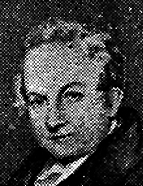

This perspective explains the successes achieved by Portugal in the 15th and 16th centuries, as well as those of nations such as the Netherlands and England in the subsequent period. Such considerations were undoubtedly of great interest to nations like France and Great Britain, which were then competing for hegemonic power status. However, the average reader would likely know little about Portugal's history between the 12th and 16th centuries, as the articles lack detailed information, omitting references to significant monarchs, heroes, and personalities, as well as chronological details and successful pertinent historical events. In this regard, the intention of the "French author" was to provide a broad overview of the evolution and transformation that occurred in Portugal during the above-mentioned period, drawing parallels with the historical processes of other empires and nations, both ancient and contemporary.
Together, the writings "translated" by Adamson convey a romanticized image of the Medieval Period, the foundational era during which the roots of modern European nations were established. The monarchs of the first Portuguese dynasty are inevitably elevated to the status of virtuous heroes who skilfully guided the country's destiny with wisdom and honour. It is asserted that Portugal's peripheral location and relative isolation enabled it to avoid the upheavals experienced by other European nations, endowing it with a unique political, cultural, and civilizational character, thus transforming the country into an exceptional case on the Old Continent. The moral and leadership qualities of the Portuguese kings of the Burgundy dynasty laid the groundwork for the nation to achieve its peak of development and expansion under the monarchs of the Avis Dynasty. Their intelligence and strategic vision enabled Portugal to establish its empire in the East, with occasional references to iconic historical figures such as Vasco da Gama and the viceroys of India. The subsequent period is generally characterised as a phase of clear decline, attributed to greed, corruption, and the erosion of traditions, as well as a lack of leaders who possessed the boldness, valour, and selflessness of the medieval monarchs or the great navigators of the Age of Discovery. This perspective on Portuguese history identifies thre e successive phases: the Middle Ages (a period of national identity creation); the Renaissance and the Discoveries (regarded as the true Golden Age), and the phase following King Manuel I's reign (regarded as a period of notable decline) likely aligned with Adamson's views, who adopts a similar perspective in his analysis of the evolution of Portuguese literature in the first volume of Lusitania Illustrata (1842). Equally intriguing is the conception of history presented by the lusophile, which closely resembles that of Thomas Carlyle (Victorian Scottish historian and philosopher strongly influenced by German romantic thought and English authors such as Samuel T. Coleridge), that he articulates in the essay On Heroes... (1841), in which he argues that great men — heroic and divinely inspired figures — are the driving force behind all transformations within any society. Like Adamson, Carlyle believed that history is not a linear and continuous evolutionary process, where one can identify alternating phases of confidence and expansion alongside periods of pessimism and destruction. The articles on Portuguese history published by the lusophile in the first decade of the 19th century already reflect a strong advocacy for the concept of heroism and a preference for providential and enlightened figures. These figures, characterised by charisma, authority, and superhuman strength, are portrayed as capable of uniting the efforts of an entire people to achieve grand goals: the glorification of a nation, the establishment of a stable regime, and the materialisation of an imperial dream.
This work is financed by national funds through FCT - Foundation for Science and Technology, I.P, in the scope of the projects UIDB/04311/2020 and UIDP/04311/2020.
